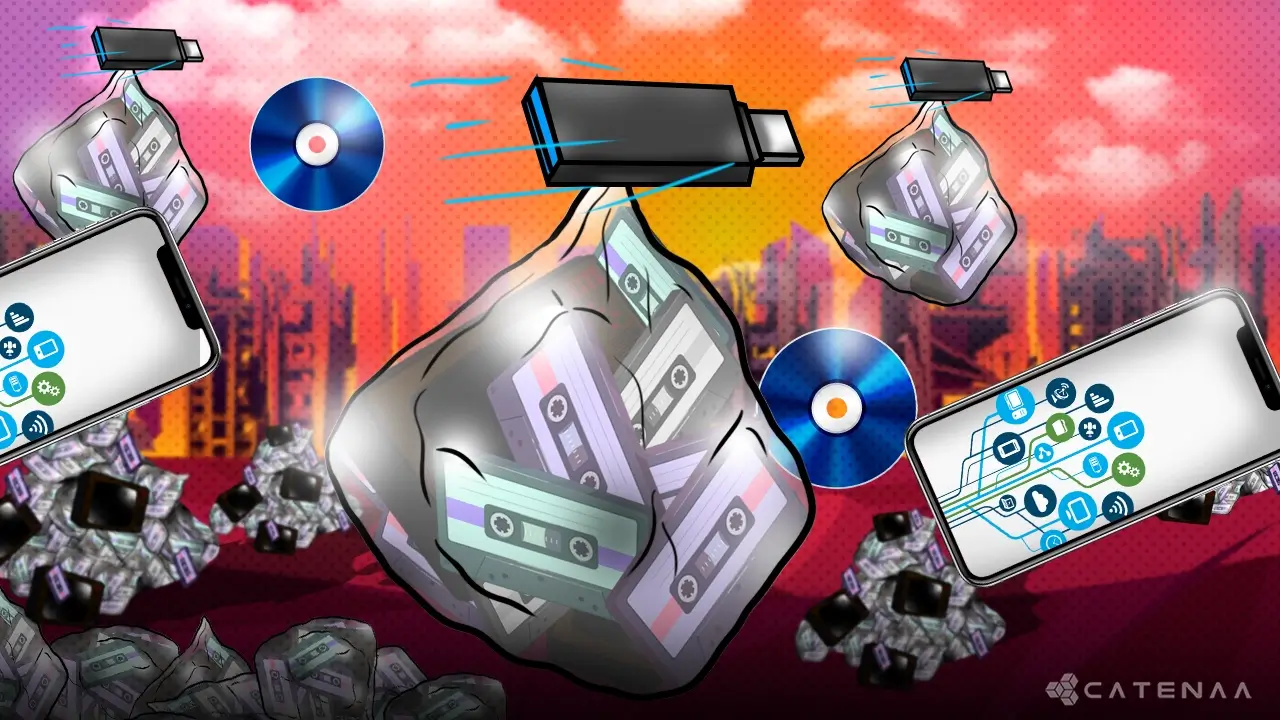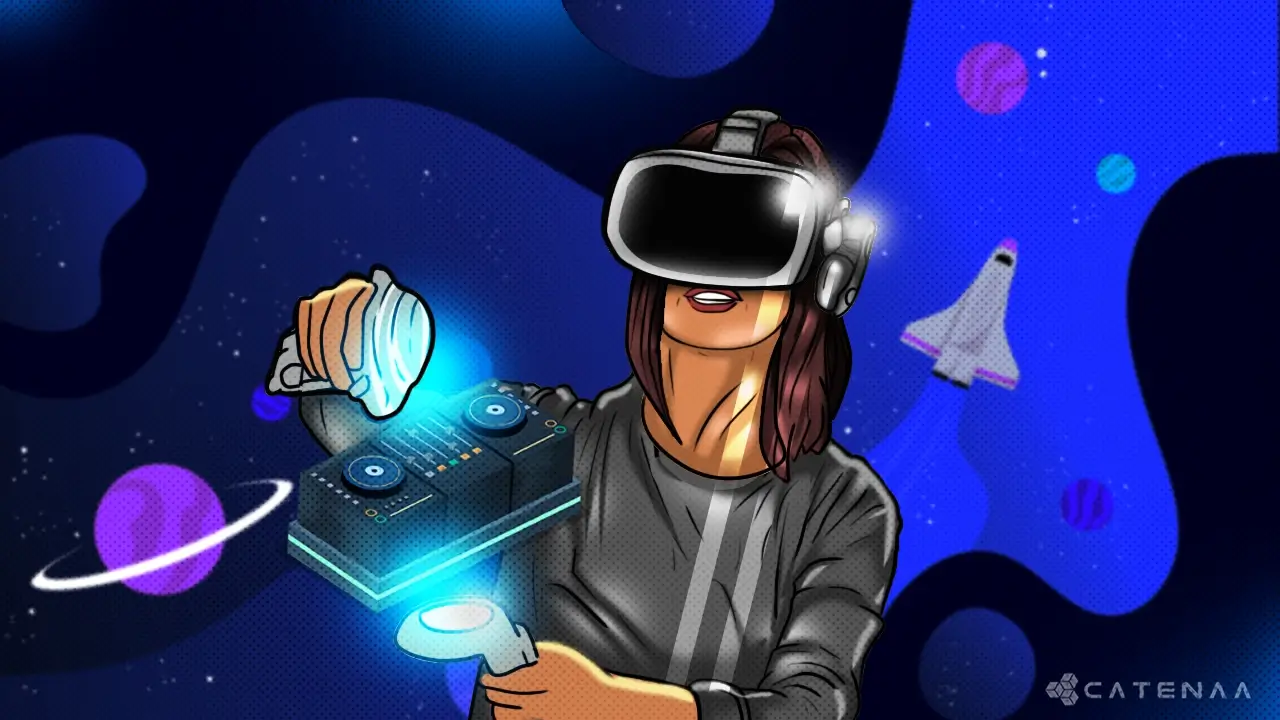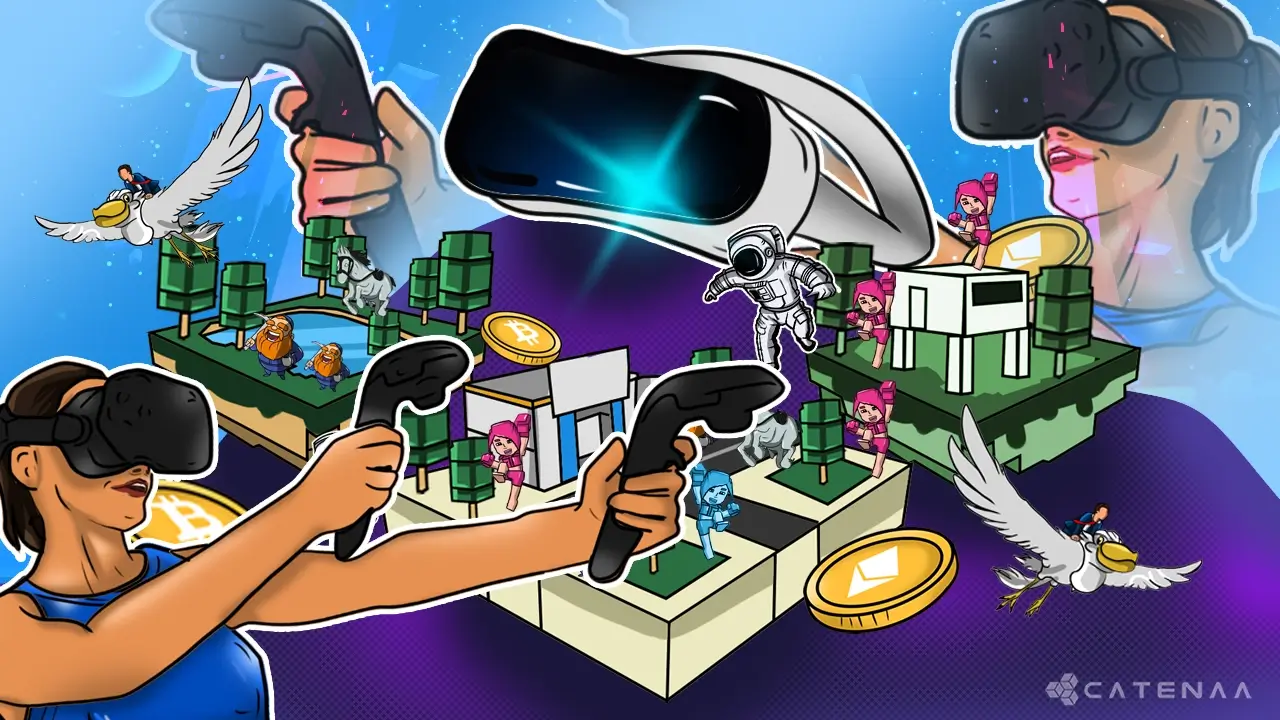Table of Content
Remember the days when you’d walk into a record store, pick up a vinyl record or a compact disc, and hold in your hands the tangible embodiment of your favorite music? The good old days when you would exchange games with friends? Those albums and CDs were more than just carriers of songs; they were gateways to an era steeped in nostalgia, where ownership meant having full control.
Today, the world of media ownership is undergoing a transformation, blurring the lines between the tangible and the virtual. It’s a change that poses fundamental questions about who truly controls our media, what happens when devices become obsolete, and the freedom we have in this digital age.
Physical vs. Virtual: A Fundamental Shift
The distinction at the heart of this transformation lies in how we own and access our media. It’s not about the type of media—both are digital in essence—but about the way we interact with it.
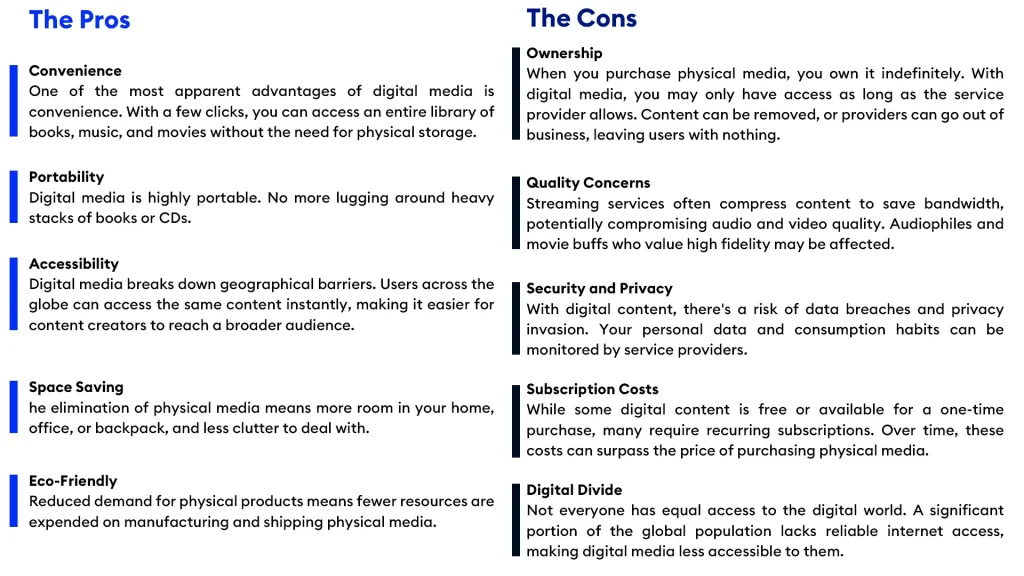
In the physical realm, you’d own a vinyl record or a CD, and with it, you’d hold not just music but the power of ownership. You could play it whenever you wish, pass it to friends, and it would remain yours as long as you took care of it. But the catch was the gradual obsolescence of devices that allowed you to enjoy these physical copies. The substantial amounts of e-waste that physical media generate cannot be ignored as well.
In the digital domain, ownership takes on a different guise. You don’t hold a physical object; instead, you own a digital license, often residing on remote servers controlled by external companies. They earn a substantially higher profit margin per unit in comparison to the physical market. The ownership is virtual, and it raises questions about individual freedom and control.
The Illusion of Ownership
When you purchase a digital copy of a movie or a game, it’s not like having a DVD or a cartridge. You might think you own it, but in reality, you’ve acquired a license—a right to access the content, subject to terms and conditions set by the platform or service provider.
The digital world offers incredible convenience. With a few clicks, you can access vast libraries of media from your home. But you’re also subject to the whims of these external entities. Video games have become completely digital when it comes to PC gaming, and console manufacturers seem to encourage going digital as of late. This is evident as Sony’s current-gen console, the PS5, has a cheaper digital-only variant. Furthermore, there have been recent rumors about a similar Xbox to be released by Microsoft.
The content you own is subject to their availability, and they can alter or remove it without your consent. Without proper preservation techniques, media belonging to this subset could be lost forever.
This came into question when Ubisoft announced it would be deleting inactive accounts earlier this year. This concerned the gaming community, as some accounts had games that would’ve been lost if they went through with the deletion. Hence, the community started a more in-depth discourse on how ownership is slowly becoming an illusion and why regulations and standards need to be implemented.
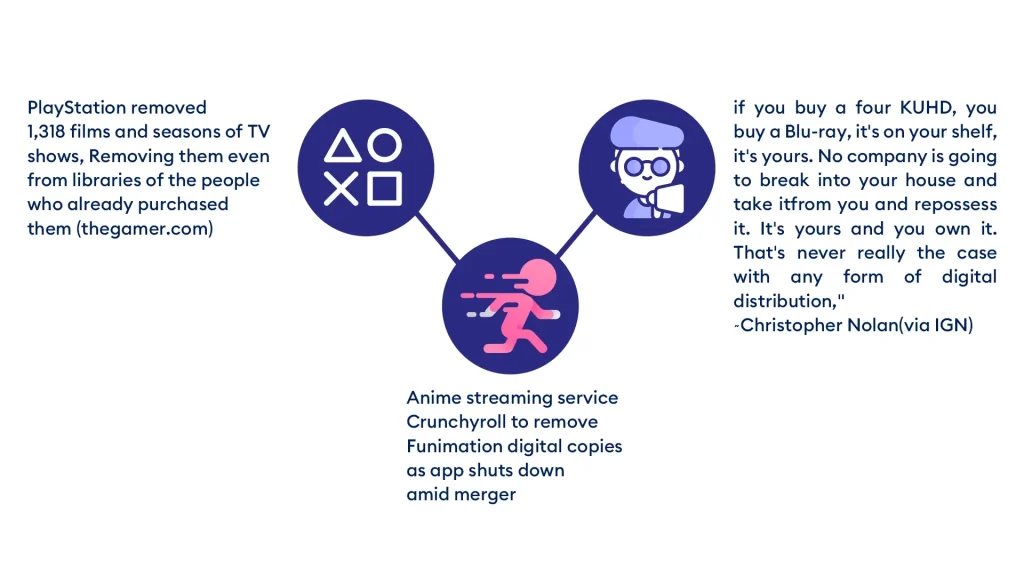
The Loss of Control
In the transition from tangible to intangible ownership, control slips through our fingers. With physical media, your ownership is tangible, and your control is unwavering. But in the digital realm, you’re at the mercy of external factors: storage companies, server uptimes, and evolving technology.
The freedom to own is slowly replaced by a complex web of dependencies. Devices must be compatible, servers must be operational, and terms of service dictate your access. It’s a profound shift in the balance of control, and it raises questions about individual freedom in the digital age.
While many retro games have been ported to be playable on modern systems, they haven’t had the greatest track record as they tend to be buggy and almost like cheap money grabs. Many independent groups within the community have emulated these games better than the original studio ports. Yet, many legal implications confine this sort of preservation.
The Revival of Nostalgia
Paradoxically, as we navigate this digital shift, a resurgence of interest in physical media emerges. Vinyl records and CDs, once considered relics of the past, are making a comeback. Collectors and enthusiasts are drawn to the tactile experience, the album artwork, and the nostalgia of flipping through a record collection.
In a world where the digital realm can feel ephemeral and transient, these physical media formats offer a tangible link to the past, rekindling the joy of ownership and control. They provide a glimpse into a time when media was not just about streaming but about holding a work of art in your hands.
Ownership Dilemma

The evolving landscape of media ownership reflects the broader shifts in our increasingly digital world. It’s not merely about digital versus physical; it’s about the evolution of ownership and the tussle for control.
The nostalgia of vinyl and CDs reminds us of a time when ownership was as real as the objects in our hands. The digital realm, while convenient, challenges the very essence of ownership and raises questions about the freedoms we might be relinquishing.
As we navigate this new terrain, the balance between tangible and intangible ownership becomes a hallmark of our times—a reminder that in the digital age, the concept of ownership is undergoing a transformation, one that is still unfolding.
